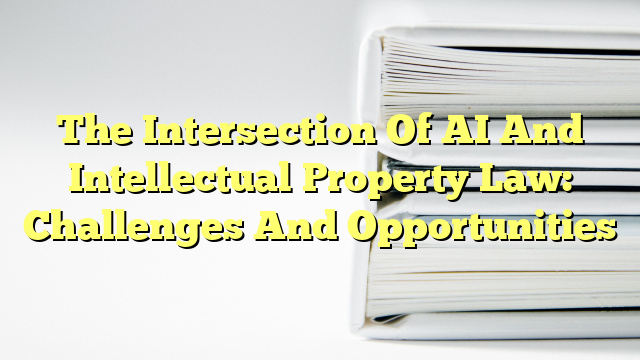Table of Contents
- What is AI?
- Challenges of AI in Law
- The Intersection of AI and Law
- Effects of AI on IP Law
- Challenges of Intellectual Property Rights
What is AI?
Artificial intelligence (AI) is a term used to describe the process of making computer systems and machines think, act and react like humans. AI can be used in many ways, including to empower machines to do tasks that would otherwise require human intelligence, such as playing sophisticated games, diagnosing medical conditions, analyzing data and driving cars. AI is revolutionizing the way we interact with machines and the way we do business.
Challenges of AI in Law
AI presents a number of challenges to the legal system. AI can be used in a variety of ways, but it can also be used to commit fraud, evade liability and manipulate the justice system. AI can also be used to manipulate the market, amplify bias, and violate privacy. These challenges are compounded by the fact that AI systems are often opaque, meaning that it is difficult to understand how AI systems make decisions.
The Intersection of AI and Law
The intersection of AI and law is still in its early stages, and the legal implications of AI systems are still being developed. AI has the potential to change the way that legal systems operate, and lawyers and legal scholars are now beginning to grapple with the implications of AI, and how it can be used to improve the law.
Effects of AI on IP Law
AI has the potential to revolutionize the way we approach intellectual property (IP) law. AI can be used to analyze and identify patterns in large datasets, which can be used to identify potential infringements of IP law. AI can also be used to develop automated IP management systems, which can be used to track, manage and enforce IP rights.
Challenges of Intellectual Property Rights
The challenges posed by AI to IP law are significant. AI can be used to generate large amounts of content that is difficult to identify as infringing or not. AI can also be used to manipulate data, which can make it difficult to prove infringement. Additionally, AI can be used to develop software that is difficult to patent or copyright. Finally, AI can be used to generate content that is difficult to monetize, as it is difficult to identify the rightful owners of the generated content.


This article highlights the important topics of AI and IP law, both of which are essential for protecting innovation and progress. It’s great to see how these disciplines intersect and offer an immense amount of potential for businesses and creators alike. For instance, AI can help owners detect possible violations and protect their IP rights. This opens doors to new possibilities and channels of monetization.
The issue of AI and its intersection with IP law brings with it both challenges and opportunities. It’s an important area to explore.
AI and IP have many opportunities, however there are complex challenges to be aware of.
AI and intellectual property law produce a complex landscape of opportunities and challenges.